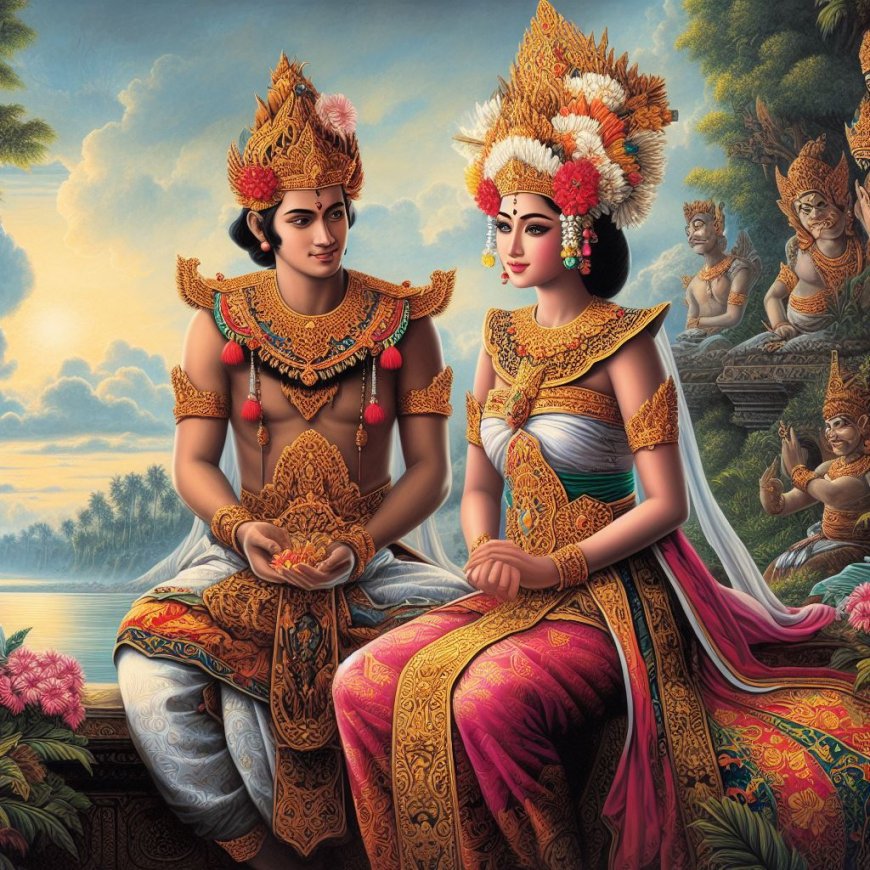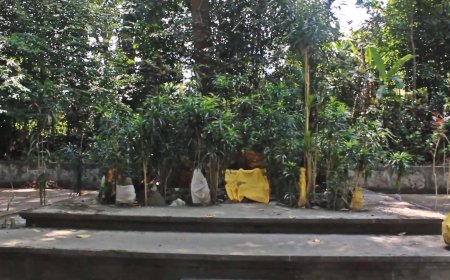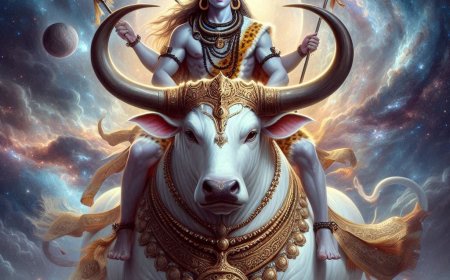In ancient times in Bali, there stood a Kingdom named the Kingdom of Kalianget, which now becomes the village of Kalianget in Buleleng. In this kingdom lived a poor family consisting of a husband and wife with three children: two boys and one girl. The kingdom was struck by a deadly disease, and the poor family was not spared. Four members of the family succumbed to the illness, leaving only the youngest, I Nyoman Jayaprana.
After losing all family members, Jayaprana mustered the courage to approach the King of Kalianget and asked for an opportunity to serve the king. The King, who was suffering and grieving the loss of many subjects, felt pity for the child abandoned by his family and eventually accepted Jayaprana. Jayaprana, under the care of the King, grew into a handsome and gallant young man. From then on, Jayaprana served the King of Kalianget, though he still resided in his family's home. He was a loyal servant, diligent and dedicated. Every morning, he would depart for the palace to fulfill his duties as the king's servant. It's no wonder he became the king's favorite, with the king cherishing and loving Jayaprana as his own child.
With his handsome appearance, Jayaprana became an idol for the maidens in the Kingdom of Wanakeling Kalianget. This prompted the king to command Jayaprana to choose one of the maidens as his wife. However, with great humility, Jayaprana refused to marry any of them, as he wanted a wife he truly loved. He also felt that he was still immature and not worthy enough to engage in romantic relationships. Despite this, King Kalianget insisted that Jayaprana find a life partner. Eventually, due to Jayaprana's unwavering loyalty, he complied with the king's wishes and asked for time to choose his bride.
One day, Jayaprana strolled outside the palace and went to the market, contemplating the king's desire. As fate would have it, he was captivated by the beauty of a flower seller, the daughter of Jero Bendesa Banjar Sekar. This girl was named Ni Komang Layonsari. Sensing that someone was watching her, Layonsari tried to disappear into the crowd at the market. Jayaprana, who lost sight of Layonsari, hurried back to the palace to inform the king about the girl. Upon learning that the flower vendor was the daughter of Jero Bendesa Banjar Sekar, the king immediately instructed Jayaprana to send a marriage proposal to Jero Bendesa Banjar Sekar. Jayaprana promptly sent the letter to Jero Bendesa Banjar Sekar.
Upon arrival, Jayaprana handed over the letter. The contents revealed it was a marriage proposal for Layonsari, the daughter of Jero Bendesa. Seeing Jayaprana's gallant and handsome appearance, and considering he was a loyal servant and practically regarded as the king's child, Layonsari's father had no objections to his daughter marrying Jayaprana.
Jayaprana felt overjoyed hearing the response from Jero Bendesa. He hurriedly returned to the kingdom. In the palace, a meeting was being held in the pendopo. Jayaprana, filled with happiness, interrupted the meeting to inform the king that his proposal was accepted by Jero Bendesa. The king, who already considered Jayaprana as his own child, shared in the joy upon hearing the news. At that very moment, the king announced to all present that Jayaprana's wedding would take place on Tuesday Legi Wuku Kuningan. The king then instructed all village heads to start preparing everything Jayaprana needed, such as houses and pavilions.
The day of Jayaprana and Layonsari's wedding arrived, accompanied by the local villagers who went to Jero Bendesa's house to propose to Layonsari with all the necessary items. The king awaited at the palace. Jayaprana and Layonsari's entourage descended from the horse-drawn carriage, bowed their heads, and paid homage to the king who blessed their union. However, in the king's heart, he was shocked by Layonsari's beauty, leaving him speechless.
After being widowed for a long time, the seeds of love grew in the heart of the king upon seeing Layonsari's beauty. King Kalianget, once known for his wisdom, became blinded by love and desired to take Jayaprana's wife, whom he had considered his own child. After the wedding celebration, Jayaprana and his wife asked to return to their home. After they left, King Kalianget immediately devised a plan to kill Jayaprana. A plan emerged to send Jayaprana to Teluk Terima. The king summoned all his ministers to discuss the plan to secretly kill Jayaprana.
The next day, King Kalianget ordered Jayaprana to appear before him. Upon Jayaprana's arrival at the audience hall, King Kalianget gave him the task of traveling to Celuk Terima to investigate issues there. Jayaprana, always loyal to the king, accepted the task and returned home to tell his wife about his departure.
Layonsari, upon hearing the news, felt worried and sad. Moreover, the night before, Layonsari had a terrible dream that her house was washed away by a massive flood. She pleaded with her husband to cancel his intention to fulfill the king's task and recounted her ominous dream. However, Jayaprana remained firm in his loyalty to the king and was unafraid of what lay ahead. For him, life and death were in the hands of Sang Hyang Widhi Wasa.
The next day, Jayaprana left with Patih Saung Guling and some soldiers, leaving his worried and sorrowful wife behind. During the journey, Jayaprana felt that something was amiss and had a premonition that someone would kill him. However, due to the king's command, he ignored it. Suddenly, Patih Saung Guling attacked Jayaprana, but failed as Jayaprana was stronger and more skilled. Jayaprana asked why Patih Saung Guling did such a thing, and in response, Patih Saung Guling handed him a letter written by the king.

Jayaprana and Patih Saung Guling (Photo Source: Personal Collection)
The letter blamed Jayaprana for having a remarkably beautiful wife, and the king wanted to kill Jayaprana to take Layonsari as his own. Reading the letter, Jayaprana cried bitterly, feeling betrayed by the king. Nevertheless, Jayaprana's loyalty to the king never wavered, recalling everything the king had done for him since childhood. While shedding tears, Jayaprana asked Patih Saung Guling to kill him if that was the king's wish. He handed over his magical dagger, the only weapon powerful enough to kill him. Without hesitation, Patih Saung Guling stabbed Jayaprana with the dagger. Blood sprayed everywhere, but there was no scent of blood; instead, it was remarkably fragrant. Jayaprana's death was also mourned by nature, causing an earthquake, and a white tiger suddenly attacked Patih Saung Guling, who ultimately perished.
News of Jayaprana's death reached the king. Filled with desire, the king went to Layonsari, expressing his sorrow and pleading with her to become his queen. Layonsari rejected the king's request, but blinded by love and lust, the king forcibly dragged Layonsari into the palace. It was then that Layonsari took the dagger from the king's belt and stabbed herself. Layonsari's blood also emitted a sweet fragrance, similar to when Jayaprana was killed.
Witnessing this, the king, now blinded by love, began to go mad and could not control himself. He killed those who approached him and eventually took his own life.
The people around brought Layonsari's body and placed it next to Jayaprana's. To honor this love story, Pura Jayaprana was established. Many Hindu followers come there to seek blessings for offspring, guidance on their love stories, approval of their relationships, and even to honor, remember, and pray for Jayaprana and Layonsari.































































